Tight platforming and roguelikes aren’t two things that often go together well. Given the procedurally generated nature of most roguelikes, tight level design is usually overlooked for variety.
Thanks to what I can only assume is a massive amount of work from Batterystaple Games, 30XX manages to include platforming that despite its roguelike nature, wouldn’t feel out of place in the original Mega Man games it’s inspired by.
30XX Review: A Blast From the Future Past
Across six colorful and varied worlds, you jump, shoot, slash, and walljump your way through increasingly difficult areas stapled together by procedural generation. Each location has a set of increasingly different challenges to pick from, so if you get the shadowy cathedral of Penumbra as your first level, it will be easier than if you get it as your third. The game ramps things up as you go through your randomly assigned quest.
You’re given the choice of controlling two characters, either the Mega Man style Nina, who has a blaster, or the Zero style Ace, who has a blade. There’s even the option to play both characters in co-op, a rare option in a roguelike.
Nina and Ace are able to dash, giving them more range and speed for their jumps, as well as wield a bunch of boss power-ups. These range from a vertically fired mortar to a column of lightning and a portable blackhole. There’s also scope to combine these powers into new forms by mixing too, but firing them always costs energy.
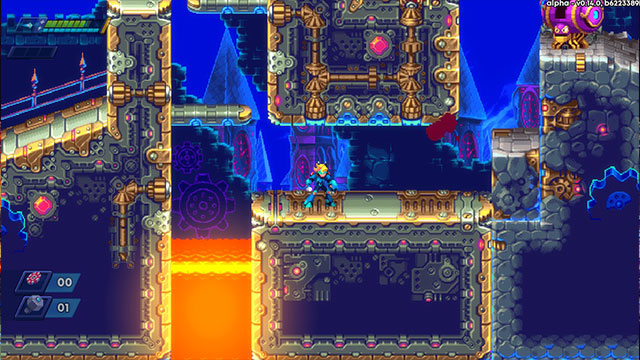
The roguelike influence comes into play beyond the level of randomization, as you’ll unlock plenty of core upgrades along the way, such as increased chance to get health on enemy kills, a double jump, shields on dash, and more. This is supplemented by gaining “Augs,” which give you various buffs and different attack types.
All said, there’s a decent amount of variety, and a permanent upgrade you can unlock allows you to salvage them into more core slots, more health, and more energy.
The meta-layer to upgrading your equipment as you progress through the game comes into focus after beating mini bosses. These drop Memoria, which lets you upgrade a handful of things such as your health cap, and Potentia, which lets you unlock more effective upgrades, such as giving you a random aug as you start a run.
When resuming a run, you’ll have the choice of randomizing levels or working from a fixed seed that presents levels in a Mega Man style 3×3 grid. The latter might better suit those who don’t mesh so well with the uneven nature of roguelike challenges, as you retain all your upgrades between deaths, letting you treat the whole parcel like a regular Mega Man game.
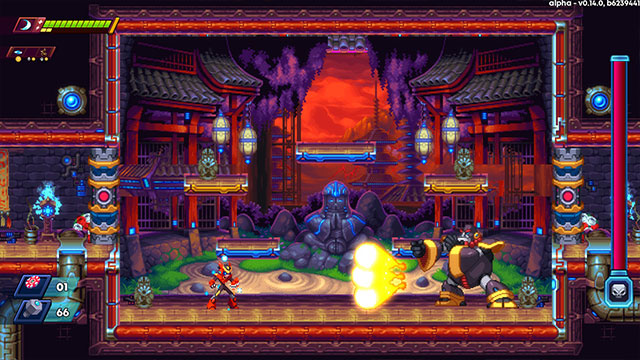
Each way has its positives and negatives, but the core gameplay is responsive and interesting throughout. Bosses are the trickiest part, many with a bloated health bar and hard-to-avoid attacks. But some are inventive, such as a chase section against an Owl robot in the lofty towers of Highvault, and a battle with a Wizard who activates a stained glass killing machine in Penumbra.
Levels themselves are also full of platforming challenges that riff on a variety of ideas. The neon computer innards of Deepverse feature lots of phasing platforms and hazards that appear out of thin air, while Penumbra features devilish jumping puzzles based around platforms that cycle in a sequence of red, blue, green as you either jump on them or hit buttons to change the active platform.
There are times when a sequence of level chunks can be strung together in such a way that you’d think it was a handcrafted platformer, and it’s a real delight to navigate through them. Sadly there are often times where sequences are on the brutal side, and progress can feel hard to come by. The amount of upgrade currency you get feels a bit on the stingy side overall, with a boss fight giving you one Potentia when upgrades cost 10 to 15.
Accumulating that much takes a while and reruns don’t often feel worth it. The only way to make progress is through the hard graft of mastering the pixel-perfect retro gameplay, which has its merits but definitely creates some friction when combined with the roguelike setup of the game.
One final point worth mentioning is 30XX‘s very generous level editor. Presumably, this is part of the tool the developers used to create the randomized level chunks you play. It lets you place tiles, enemies, hazards, and so on, tweaking their movement and other things to create a playable area that you can save, upload, and share with others.
It’s fun to just throw things in and have a run-through, and like Mario Maker, I can see people making some devious challenges this way. It’s not overly detailed, but the base game’s enemy patterns and hazards work like clockwork toys, and careful placement can lead to some hazardous gauntlets. You can save out chunks as easy, normal, or hard, which impacts where they’ll show up in levels, and there’s nothing to stop you from messing with that expectation by throwing easy sections into hard and vice versa.
30XX Review — The Bottom Line
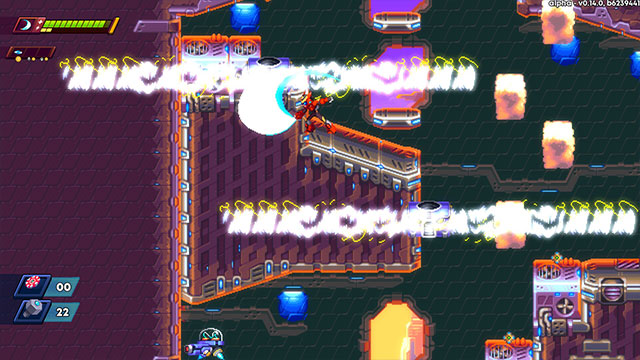
Pros
- Excellent pixel art presentation
- Tight, inventive platforming challenges
- A variety of upgrades to work with
- Choice of roguelike or traditional progress
- Powerful, easy to use level editor
Cons
- Upgrading at the metalevel takes a while
- Some levels types are much harder later on
- Avoiding enemy attacks can feel a little too hit and miss
Overall 30XX is a bright, well-paced experience that has plenty of forward-thinking ideas rooted in throwback mechanics.
Special mention has to go to the art style, which perfectly captures the dense and detailed pixel styling of the latter-day Mega Man games on the SNES and GBA. Environments are incredibly colorful, with lovely background art and some cute enemy sprites, even if a few are a little uninspired.
30XX gives players plenty of variety in how they approach it, and the legacy mode that plays like a regular platformer is a welcome addition.
[Note: Batterystaple Games provided the copy of 30XX used for this review.]

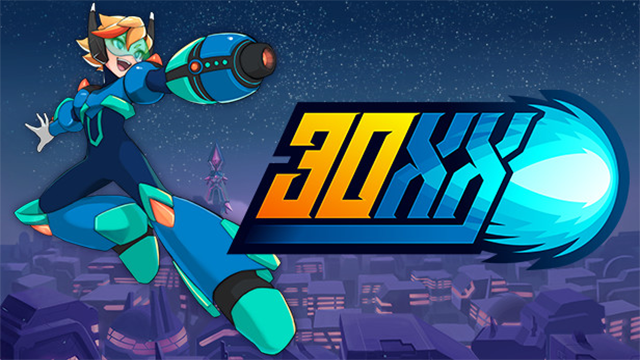





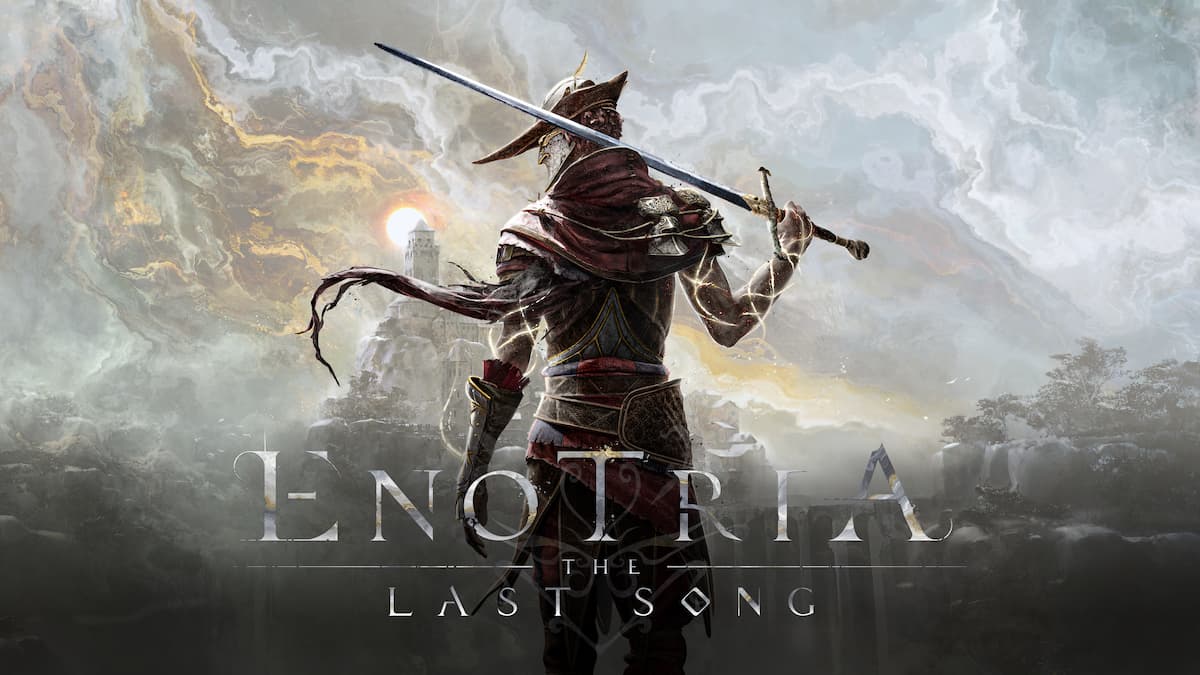
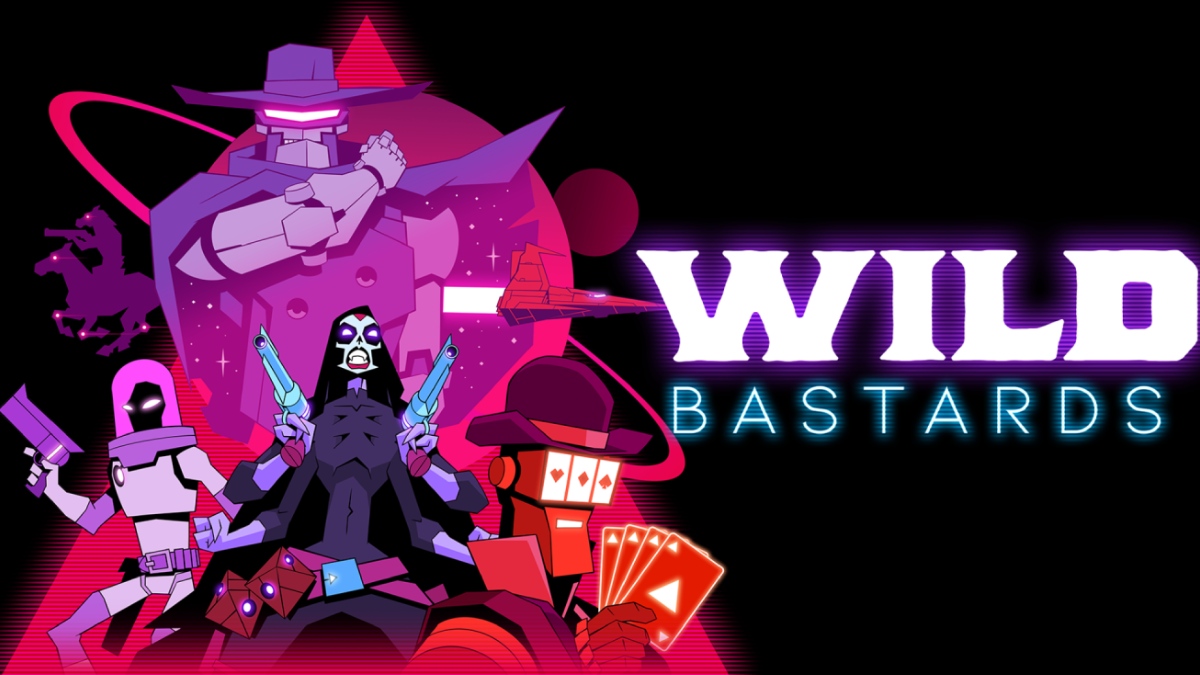

Published: Feb 15, 2021 02:23 pm